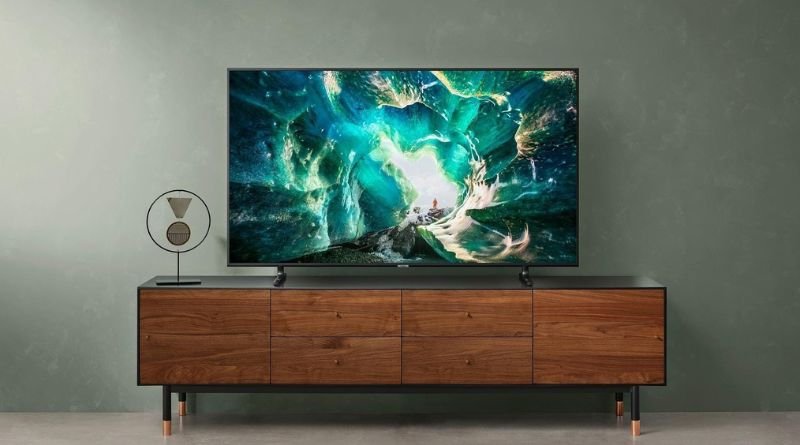How many inches should your TV be? The answer depends on what you’re using it for. If you’re watching sports or playing video games, you’ll want at least a 50-inch screen to improve your viewing experience and make the athletes seem life-sized. For movies and TV shows, however, you’ll only need something around 40 inches.
Plasma vs. LCD
When it comes to choosing a television, there are many factors to consider. But one of the most important is the type of display technology. Plasma and LCD are the two most common types of display technology used in televisions today. Both have their pros and cons, so it’s important to know which one is right for you before making a purchase.
First off, plasmas generally produce deeper blacks than LCDs. So if your goal is to watch movies or play video games with rich color and deep black levels, plasma might be the best choice for you. That said, because they need some time to warm up when they’re turned on—which can be as long as five minutes—plasma screens don’t make good TV sets that are on all day long.
LCDs also tend to suffer from screen burn-in more often than plasmas do, so if that’s something that concerns you then this might not be the best option for you either.
With that being said, LCDs typically offer much better viewing angles than plasmas. They also tend to provide higher resolutions and more accurate colors than plasmas. For these reasons, many people prefer an LCD over a plasma despite its downsides. It all depends on what you value most when deciding which one is right for you.
1080p vs. 4K TVS
In the market for a new TV? You’re not alone. A lot of people are looking to upgrade their 1080p TV to a 4K model. But what is 4K, and is it worth the extra money? Here’s everything you need to know about the next generation in televisions, including which size is best for your needs. A) The Basics of 4K
4K televisions use four times as many pixels as traditional HDTVs. That means that the image will be much sharper than an HDTV because more data is used to create every pixel on screen (1,080 x 1,920 pixels on a 4K TV vs. 1,080 x 720 pixels on an HDTV).
However, they also require more processing power because they use up to 10x as much bandwidth compared with 1080p resolutions–so if you have slow Internet speeds or limited Wi-Fi coverage, this may not be the right choice for you.
What Size Should I Get? 2160P vs.
A 1080p TV is best for people who want a set that will display movies in their original format, whether it be on Blu-ray or an online streaming service like Netflix or Amazon Video.
Smart TVS or not?
In the market for a new television? You’re in luck: There are plenty of great TVs to choose from in 2021. But with so many options, it can be tough to know where to start. Do you want a smart TV or not? What’s the difference between 4K and 8K? And how big should your TV be, anyway? If you don’t have time to answer these questions (we don’t blame you), this list is here to help.
Here are the best TVs on the market in 2020, divided by size and budget. All models come equipped with features like Dolby Vision HDR and wide color gamut. The 40-inch models come in 1080p and 720p versions, while the larger sizes come only in 1080p. The 2018 line offers Samsung’s QLED technology, which they say is four times brighter than any other TV on the market.
The 2019 lineup offers an all-new design that Samsung says will change the way we look at screens. They also offer ultra-thin displays for those who care about style as much as performance. Sony makes one of our favorite sets this year – it comes in black or white at various screen sizes, but all include Sony’s Triluminos display tech, which allows colors to appear more vivid than ever before.
Gaming TVs or not?
Wondering if you should buy a gaming TV? Here’s what you need to know. Gaming TVs have certain features that make them well-suited for gaming, including low input lag, high refresh rates, and variable refresh rate (VRR) support. However, not all gamers need a gaming TV.
If you don’t play competitively or care about having the absolute best performance, you can get by with a regular TV. Plus, gaming TVs tend to be more expensive than regular TVs. So if you’re on a budget, you may want to stick with a regular TV. Here are some of the best TVs for gaming in 2021 from sizes from 40 to 70 inches.
- LG Electronics OLED65C8P
- Sony XBR65X900F
- Samsung QE55Q9FN
- Vizio P65-F1
- TCL 65S517
- Hisense H40N6910
- LG Electronics UJ7700
- Sony X700D
- Hisense H50N6800
- Hisense H50N6870
- Sharp LC-43LE650U
- Philips 328P6VJEB
- LG Electronics OLED55B7A
- Samsung QE60Q7F
- Sony A8F
- Sony KD60X690E
- TCL S405
- TCL 55G710
- Sharp LC-43LE820U
- Samsung QE32M3520

